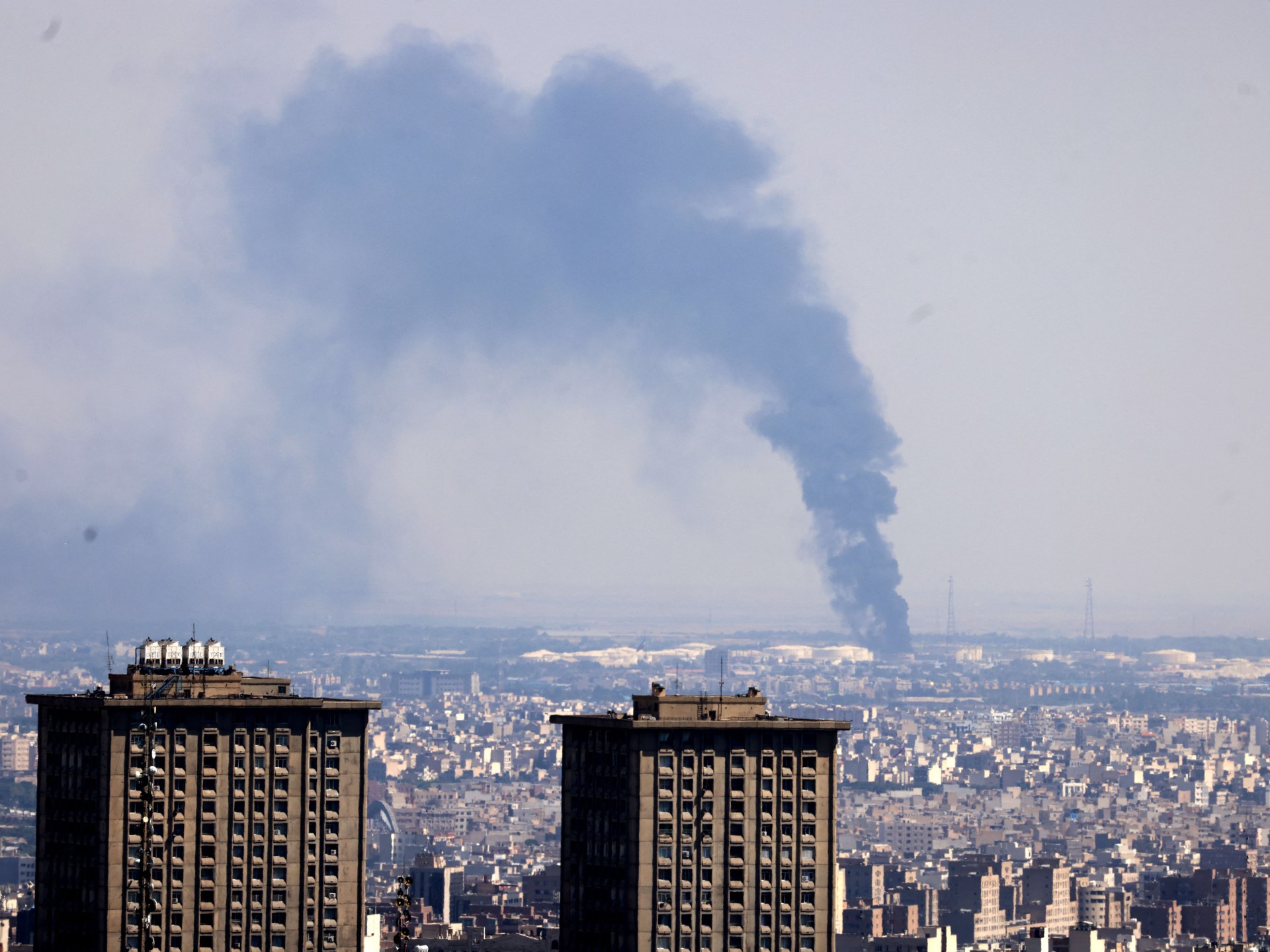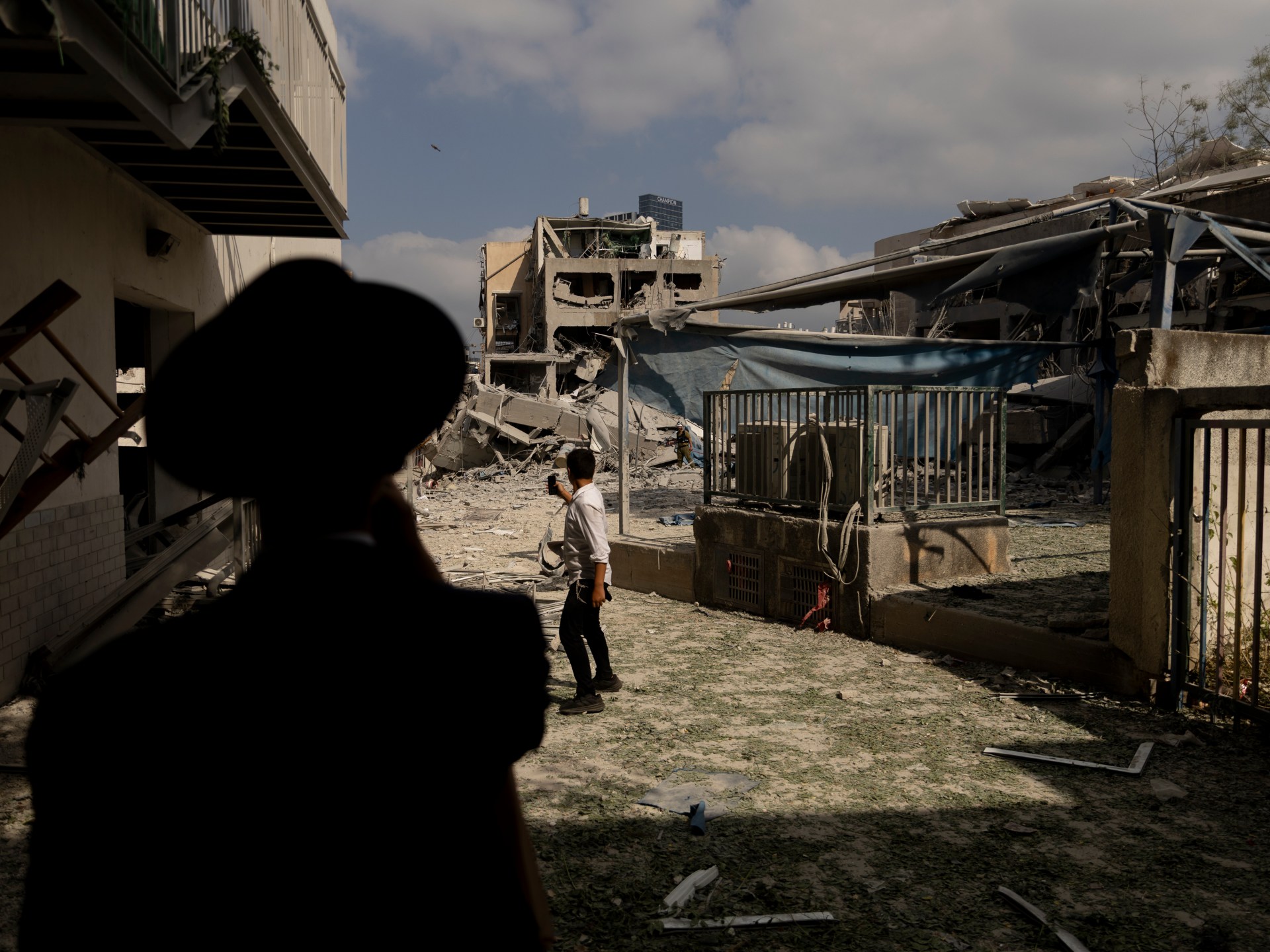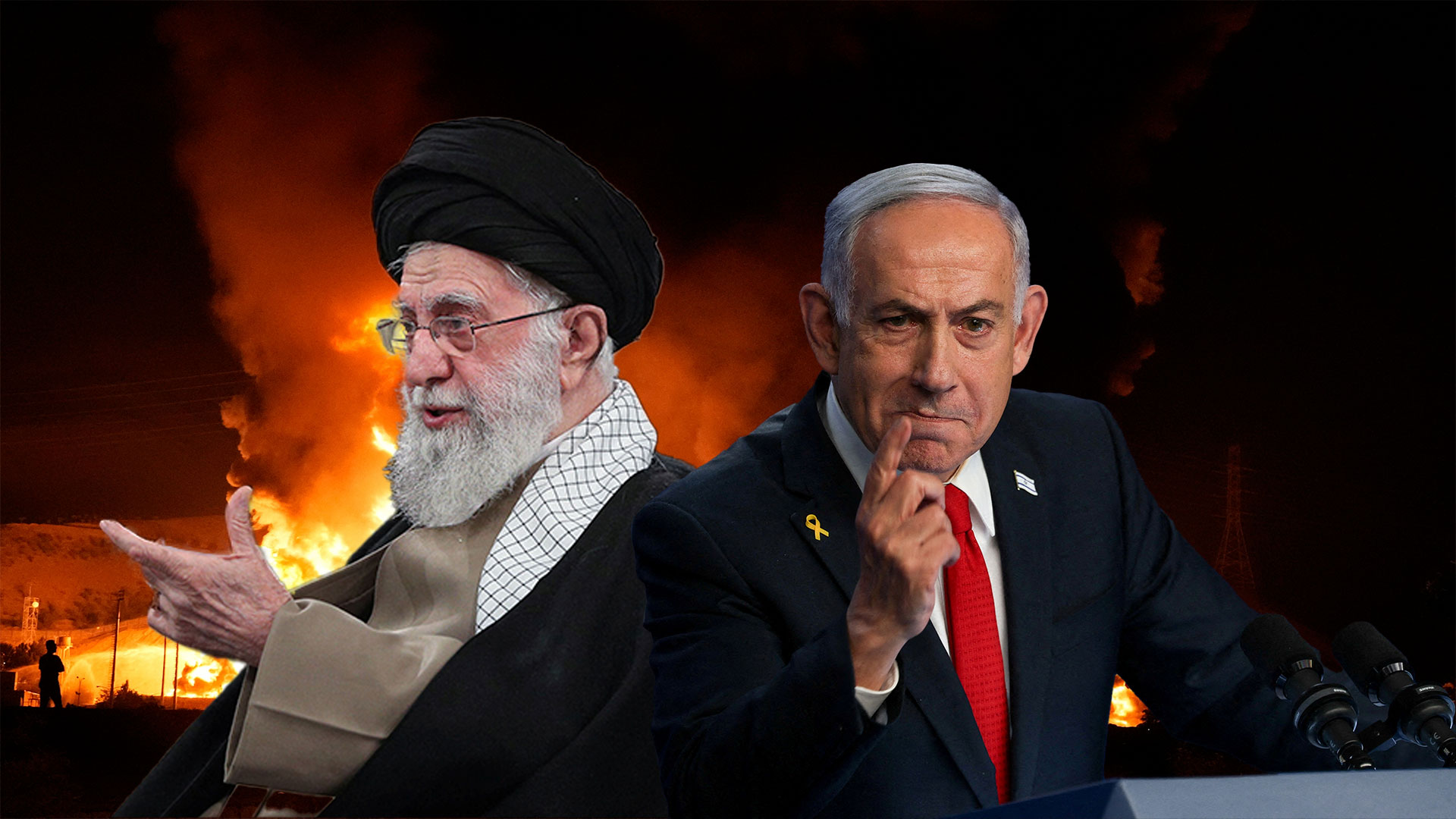Iranian Supreme Leader Ali Khamenei has warned the United States that joining Israeli strikes on his country would “result in irreparable consequences” for the US as his and US President Donald Trump’s war of words accelerates and the Israel-Iran hostilities rage for a sixth day.
In his first televised address since Israel began its attacks on Friday, Khamenei said on Wednesday that Iran “will not surrender to anyone”.
His remarks came as Israel reported that Iran launched a fresh wave of missiles on Wednesday evening, with explosions heard in the greater Tel Aviv area and east of the city, following Israeli strikes on Tehran and other parts of the country throughout the day.
Iran “will stand firm against an imposed war, just as it will stand firm against an imposed peace”, he said.
Responding to threatening remarks made a day earlier by Trump, Khamenei said those who know Iran and its history “know that Iranians do not answer well to the language of threat”.
In recent days, Trump has strongly hinted that the US could join in Israel’s military operation against Iran, saying he is seeking something “much bigger” than a ceasefire.
In comments made on Wednesday on the White House lawn at a flag-raising ceremony, Trump said: “I may do it. I may not do it,” when asked if the US was moving closer to striking Iran. “I mean, nobody knows what I’m going to do,” he added.
He claimed, without offering any evidence, that Iran is “totally defenceless. They have no air defence whatsoever.” Iran has said it has had success in bringing down Israeli drones and fighter jets.
“The next week is going to be very big, maybe less than a week,” Trump said without elaborating.
The US has in recent days sent more warplanes to the Middle East and is also sending the USS Nimitz aircraft carrier.
The US president claimed Iranian officials reached out to him and suggested visiting the White House, something Iran denies.
“No Iranian official has ever asked to grovel at the gates of the White House. The only thing more despicable than his lies is his cowardly threat to ‘take out’ Iran’s Supreme Leader,” the Iranian mission at the United Nations said in a post on X.
No Iranian official has ever asked to grovel at the gates of the White House. The only thing more despicable than his lies is his cowardly threat to “take out” Iran’s Supreme Leader.
Iran does NOT negotiate under duress, shall NOT accept peace under duress, and certainly NOT…
Trump’s comments came after he demanded on Tuesday Iran’s “unconditional surrender”, saying: “We now have complete and total control of the skies over Iran.” He also boasted that the US could easily assassinate Khamenei.
In an interview with Al Jazeera, Iran’s Ministry of Foreign Affairs spokesman Esmaeil Baghaei echoed Khamenei’s sentiments, warning: “Any American intervention would be a recipe for an all-out war in the region.”
Iran is “under an attack by a genocidal” government and it will defend itself with “full force” against Israel’s “war of aggression”, Baghaei said.
Significantly, he added he trusted that Iran’s Arab neighbours would not allow the US to launch attacks on Iran from their countries.
Day 6 of Israel-Iran hostilities
The warnings were issued as Israel and Iran exchanged fire for a sixth consecutive day. The Israeli military said it struck 40 sites in Iran, including centrifuge production and weapons facilities.
The strikes targeted two centrifuge production sites – one in Tehran and one in Karaj, according to the International Atomic Energy Agency (IAEA).
Reporting from Tehran, Al Jazeera’s Tohid Assadi said explosions were heard near Payam International Airport in Karaj as well as in areas in eastern Tehran. An Iranian government spokesperson also confirmed cyberattacks on at least two of Iran’s banks, he added.
ویدیوی دریافتی: “حمله دوباره به حوالی همان نقطه قبلی در شمال شرق #تهران.
بزرگراه صدر در تصویر مشخص است.”#iran #israel https://t.co/DAYs7Qmtb3 pic.twitter.com/vV6jlM199W
Translation: Another attack near the same previous location in northeast Tehran. Sadr Highway is visible in the footage.
Israeli Defence Minister Israel Katz said Israeli jets “destroyed the Iranian regime’s internal security headquarters” without providing evidence.
Israel’s military confirmed one of its remotely piloted aircraft fell in Iran after being shot at by a surface-to-air missile. “No injuries were reported, and there is no risk of an information breach,” the military said. Iranian state media earlier had said Iranian forces shot down an Israeli drone and fighter jet.
‘Crazed’ Israeli attacks
Israeli strikes have continued to target other areas of Iran, including the central province of Isfahan. An Israeli strike on a vehicle in Najafabad killed six people, including a pregnant woman and two children, Iran’s Tasnim news agency reported.
According to Iran’s Ministry of Health and Medical Education, at least 240 people, including 70 women and children, have been killed since Israel began attacking the country.
In a statement on Wednesday, the Israeli army said it is “operating freely” in Iranian skies and had shot down 10 Iranian drones.
It also said its forces intercepted an Iranian drone that entered airspace over the Israeli-occupied Golan Heights in Syria.
Meanwhile, as Iran continues to launch barrages of Iranian missiles at Israel, Al Jazeera’s Nour Odeh, reporting from Amman, Jordan, said Iran’s attacks are creating an unprecedented “disruption” of life.
“Over the past six days, the Israeli public has experienced something they haven’t in the past: a formidable army that is firing ballistic missiles at Israeli cities and sensitive Israeli sites,” Odeh said.
They’re seeing “reports in their back yard of dozens of buildings damaged and condemned for demolition,” she said. “There are more than 1,300 Israelis who now have to live in hotels because their homes are unliveable, damaged beyond repair.”
IN another development, Iran’s Ministry of Communications said it will temporarily limit internet access to prevent “the enemy from threatening citizens’ lives and property.” The announcement follows an earlier report from the London-based internet watchdog Netblocks stating that there was a “near-total national internet blackout.”
The attacks have continued to cause global concern, and many countries have expressed a need for de-escalation.
Russian President Vladimir Putin reiterated his country’s willingness to help mediate the crisis.
Speaking to members of his ruling Justice and Development Party in parliament, Turkish President Recep Tayyip Erdogan said his country wants to see the crisis resolved diplomatically and Ankara could play a constructive role.
Erdogan accused Israel of waging “crazed” attacks against Iran that amount to “state terrorism”. Iran’s response, he said, has been natural, legal and legitimate.
Hassan Ahmadian, an associate professor at the University of Tehran, said he doubts the prospects for any diplomatic solution between Iran and the US, which had been trying to reach a new nuclear agreement before Israel launched its attacks.
“The minimal trust that led to the negotiations with the US is currently nonexistent,” Ahmadian said, adding that many Iranians now view the previous round of nuclear talks as little more than a distraction before the surprise Israeli attack.





